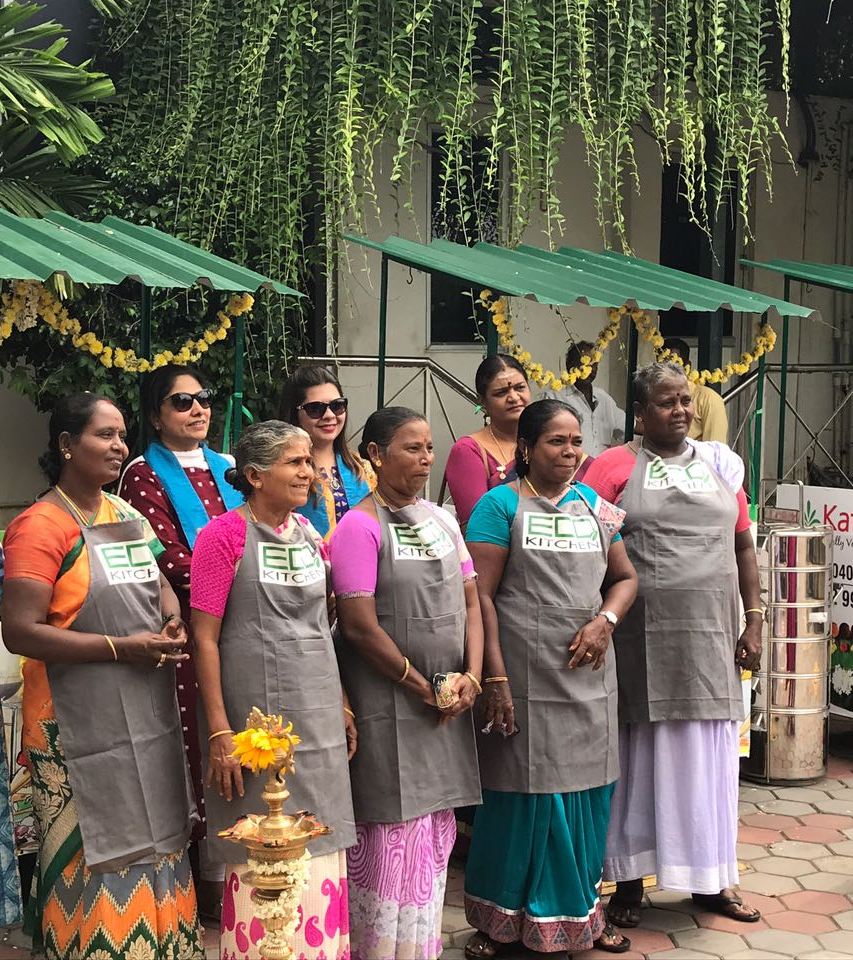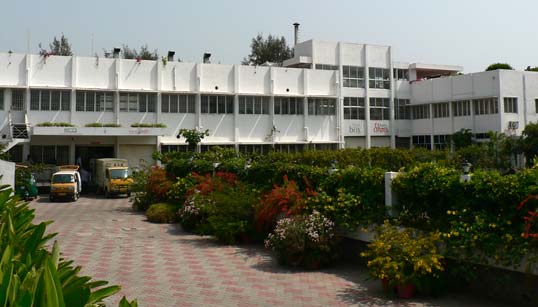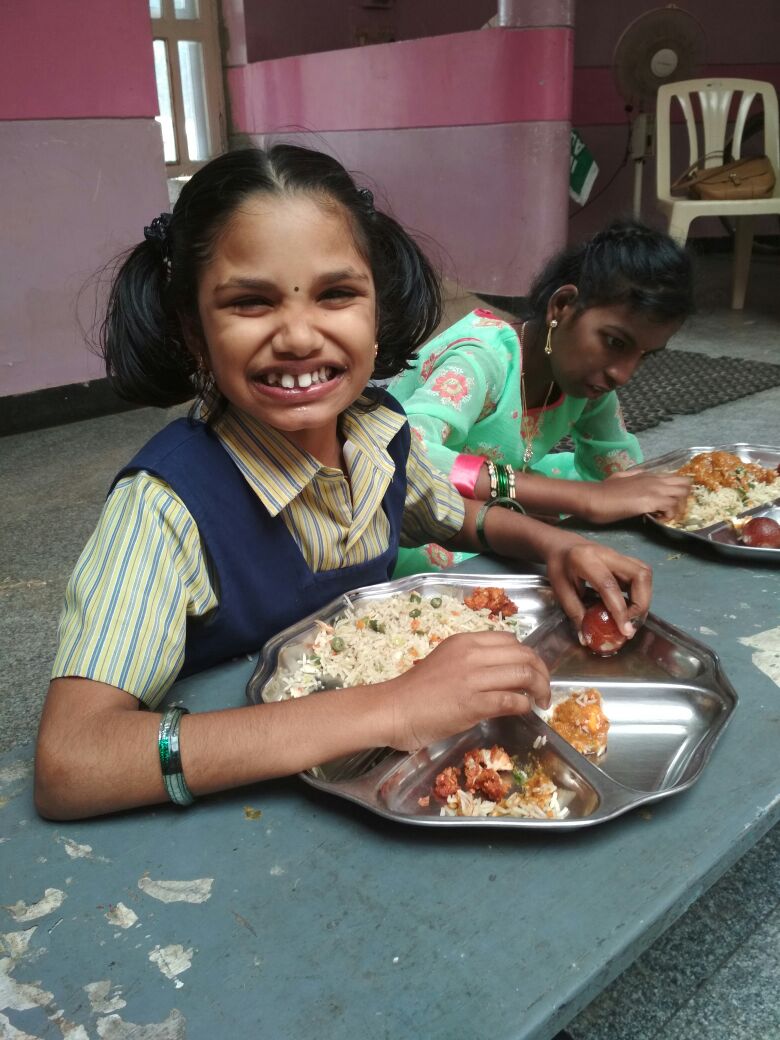Sodexo On-Site Services partnered up with ECO Kitchen project to offer livelihood opportunities to 150 women.
Corporate social responsibility (CSR) is a business imperative today. Thanks to the introduction of CSR rules under Section 135 of the Companies Act, major companies have to direct a percentage of their profits towards social development initiatives.
However, even before these rules came into play, Sodexo On-Site Services, a leading service provider of food and facilities management solutions, had ventured on a journey to fulfil its CSR obligations by entering into a partnership with the ECO Kitchen initiative based out of Chennai in October 2010.
Under ECO Kitchen, a food retail social entrepreneurship project of the YR Gaitonde Foundation (YRG), women from economically-challenged backgrounds, widows, and victims of domestic abuse, are given opportunities to earn a respectable livelihood.
Their KATHIR initiative, for example, offers livelihood opportunities to urban women affected by domestic violence and in need of resources to care for family members with debilitating health problems. These KATHIR entrepreneurs are given training in food safety, nutrition and business techniques, among other facets of selling these meals.
Take the example of 42-year-old Leela. She sells hot meals to over 100-150 customers in Guindy, earning an average of Rs 1,000 per day. Empowered by the initiative, she is now motivating other oppressed women to join the program. “I am thankful to ECO Kitchen for the opportunity. KATHIR has turned my life around completely. Through the sustainable income, I can educate my daughters in a good school. I am not dependent on my family members anymore,” she says.
“Sodexo provides the meal cooking assistance, which allows ECO Kitchen, through its network of volunteers to focus on its community outreach program concentrated on identifying women who need financial assistance, while maintaining a work-life balance,” says Pradeep Chavda, Human Resources Director at Sodexo India to The Better India.
On an average, Sodexo cooks over 10,000-15,000 vegetarian meals a day in the central kitchen facility, which is sourced by partnering women entrepreneurs from difficult circumstances and sold in the market on carts/kiosks. The margin at which they sell the meals in the market is the profit they make.
The central kitchen facility for these meals is located in Injambakkam. Backed by a state-of-the-art kitchen which employs renewable energy (solar powered-panels and biomass briquettes), the ECO Kitchen facility leaves behind a low carbon footprint and delivers cheap and hygienic food for low-income families in the city. Sodexo operates the central kitchen, where 32 of its staff are employed. They offer food services at the site.
“Clearly, a business needs to be profitable to be able to give back to the society. Being in the service industry, we are an important link between our clients, consumers and employees. As an employer, service provider and corporate citizen, our focus is on offering Quality of Life services. We have defined clear deliverables for each of these elements. There are clear targets and measurement metrics,” says Chavda, about the scope of the company’s CSR initiative.
Rather than treating CSR as a mere philanthropic endeavour, it is imperative to note that companies view these social development endeavours as strategic ventures. In other words, companies are looking to align their CSR-related activities with their business. This convergence allows companies to bring in their expertise and enables volunteering.
“ECO Kitchen has collaborated with Sodexo to provide the much needed reliable, value-added food catering solution. Based on its experience, Sodexo offers the quality, hygiene, timely delivery of meals to diverse clients as per their needs, while ECO kitchen reaches out to clients, women social entrepreneurs and KATHIR Dhan beneficiaries. This allows ECO Kitchen to focus on its core job of community outreach to promote social entrepreneurship among the underserved communities in Chennai. Portion sizes are standardised. The idea is to offer quality food at the best possible price. Here, one partner complements the other,” says Chavda.
This initiative also falls in line with Sodexo’s Better Tomorrow 2025 goals, which focuses on issues pertaining to gender equality, hunger and malnutrition. As stated earlier, KATHIR offers innovative opportunities for disadvantaged urban women in Chennai affected by domestic violence, paving the way towards greater financial freedom. Training these women entrepreneurs in helping them set up their stalls and sell these meals is a critical facet of the ECO Kitchen project.
“The role played by ECO Kitchen is to offer the necessary assistance at every stage—from sourcing the food, handling it hygienically, transportation assistance, procuring a kiosk to managing finances. Periodic sessions are conducted on various subject matters by ECO Kitchen along with partners and networks. Sodexo offers support in the area of food handling,” says Chavda.
Under the ECO Kitchen initiative, more than 150 women are benefitting from earning a steady income through their sheer will and effort. “With support from Sodexo, we have been able to support women who have suffered societal abuse, outstretching our hands for widows of HIV positives and likewise, women from the economically challenged backgrounds. This no-profit-no-loss partnership with Sodexo has driven hygiene awareness and given economic independence to the women associated with ECO Kitchen.
The ‘Wow’ factor comes in when these women entrepreneurs, trained by Sodexo are placed as corporate service agents. By selling the Sodexo cooked meals at ECO Kitchen, these women are earning their livelihoods,” says Sethulakshmi, collaborator at ECO Kitchen.
Take the example of Rajeshwari from Jafferkhanpet in the Thirunagar area, who works in partnership with ECO Kitchen. “I serve the Sodexo cooked meals to the community at a market in Guindy. The margin I make off the meals bought from their kitchen It is sufficient enough to support me in educating my daughters in a quality school in our vicinity. I earn Rs 700 per day with my husband pitching in with his own kiosk business. Along with me, there are many other beneficiaries empowered by Eco-Kitchen. Thanks to Sodexo, I can make ends meet,” says Rajeshwari.
What’s apparent through this partnership is Sodexo’s degree of involvement. It isn’t necessarily above and beyond what’s ideally required of companies, but what the Sodexo-ECO Kitchen project has managed to achieve is a perfect convergence of business expertise and social development.
Article Source: The Better India



